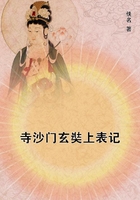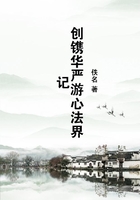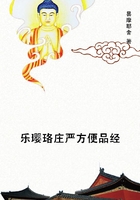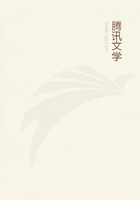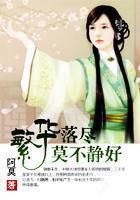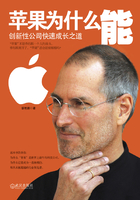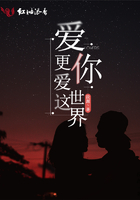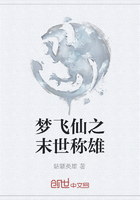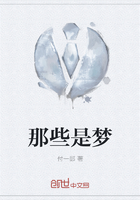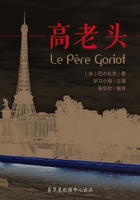At the Venetian festivals the processions, not on land but on water, were marvelous in their fantastic splendor.The sailing of the Bucentaur to meet the Princesses of Ferrara in the year 1491 seems to have been something belonging to fairyland.Countless vessels with garlands and hangings, filled with the richly dressed youth of the city, moved in front; genii with attributes symbolizing the various gods, floated on machines hung in the air; below stood others grouped as tritons and nymphs; the air was filled with music, sweet odors, and the fluttering of embroidered banners.The Bucentaur was followed by such a crowd of boats of every sort that for a mile all round _(octo stadia) _the water could not be seen.With regard to the rest of the festivities, besides the pantomime mentioned above, we may notice as something new a boat-race of fifty powerful girls.In the sixteenth century the nobility were divided into corporations with a view to these festivals, whose most noteworthy feature was some extraordinary machine placed on a ship.So, for instance, in the year 1541, at the festival of the 'Sempiterni,' a round 'universe' floated along the Grand Canal, and a splendid ball was given inside it.The Carnival, too, in this city was famous for its dances, processions, and exhibitions of every kind.The Square of St.Mark was found to give space enough not only for tournaments, but for 'Trionfi,' similar to those common on the mainland.At a festival held on the conclusion of peace, the pious brotherhoods ('scuole') took each its part in the procession.There, among golden chandeliers with red candles, among crowds of musicians and winged boys with golden bowls and horns of plenty, was seen a car on which Noah and David sat together enthroned;then came Abigail, leading a camel laden with treasures, and a second car with a group of political figures- -Italy sitting be tween Venice and Liguria--and on a raised step three female symbolical figures with the arms of the allied princes.This was followed by a great globe with the constellations, as it seems, round it.The princes themselves, or rather their bodily representatives, appeared on other chariots with their servants and their coats of arms, if we have rightly interpreted our author.
The Carnival, properly so called, apart from these great triumphal marches, had nowhere, perhaps, in the fifteenth century so varied a character as in Rome.There were races of every kind--of horses, asses, buffaloes, old men, young men, Jews, and so on.Paul II entertained the people in crowds before the Palazzo di Venezia, in which he lived.The games in the Piazza Navona, which had probably never altogether ceased since the classical times, were remarkable for their warlike splendor.
We read of a sham fight of cavalry, and a review of all the citizens in arms.The greatest freedom existed with regard to the use of masks, which were sometimes allowed for several months together.Sixtus IVventured, in the most populous part of the city--at the Campofiore and near the Banchi --to make his way through crowds of masks, though he declined to receive them as visitors in the Vatican.Under Innocent VIII, a discreditable usage, which had already appeared among the Cardinals, attained its height.In the Carnival of 1491, they sent one another chariots full of splendid masks, of singers, and of buffoons, chanting scandalous verses.They were accompanied by men on horseback.
Apart from the Carnival, the Romans seem to have been the first to discover the effect of a great procession by torchlight.When Pius IIcame back from the Congress of Mantua in 1459, the people waited on him with a squadron of horsemen bearing torches, who rode in shining circles before his palace.Sixtus IV, however, thought it better to decline a nocturnal visit of the people, who proposed to wait on him with torches and olive-branches.
But the Florentine Carnival surpassed the Roman in a certain class of processions, which have left their mark even in literature.Among a crowd of masks on foot and on horseback appeared some huge, fantastic chariots, and upon each an allegorical figure or group of figures with the proper accompaniments, such as Jealousy with four spectacled faces on one head; the four temperaments with the planets belonging to them;the three Fates; Prudence enthroned above Hope and Fear, which lay bound before her; the four Elements, Ages, Winds, Seasons, and so on;as well as the famous chariot of Death with the coffins, which presently opened.Sometimes we meet with a splendid scene from classical mythology--Bacchus and Ariadne, Paris and Helen, and others.
Or else a chorus of figures forming some single class or category, as the beggars, the hunters and nymphs, the lost souls who in their lifetime were hardhearted women, the hermits, the astrologers, the vagabonds, the devils, the sellers of various kinds of wares, and even on one occasion 'il popolo,' the people as such, who all reviled one another in their songs.The songs, which still remain and have been collected, give the explanation of the masquerade sometimes pathetic, sometimes in a humorous, and sometimes in an excessively indecent tone.
Some of the worst in this respect are attributed to Lorenzo the Magnificent, probably because the real author did not venture to declare himself.However this may be, we must certainly ascribe to him the beautiful song which accompanied the masque of Bacchus and Ariadne, whose refrain still echoes to us from the fifteenth century, like a regretful presentiment of the brief splendor of the Renaissance itself:
'Quanto ?bella giovinezza, Che si fugge tuttavia!
Chi vuol esser lieto, sia:
Di doman non c'?certezza.'

